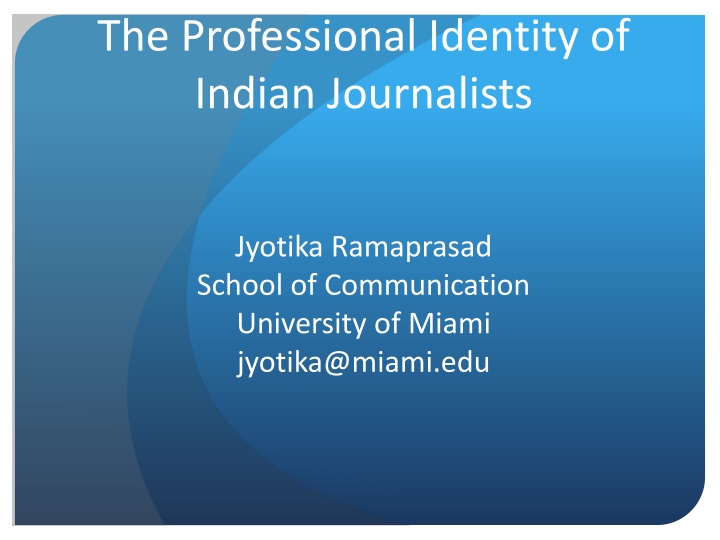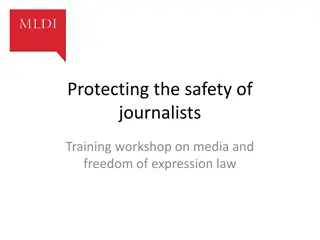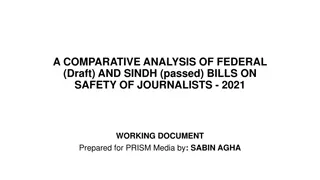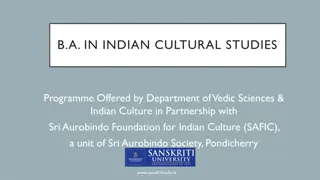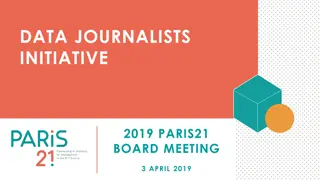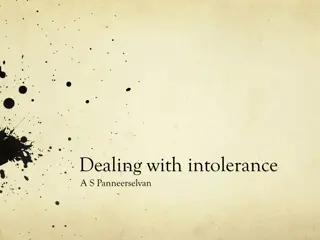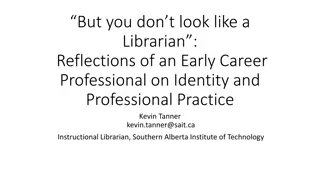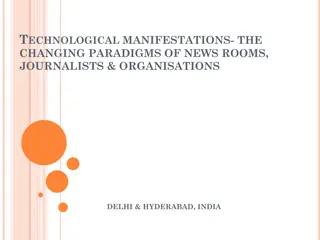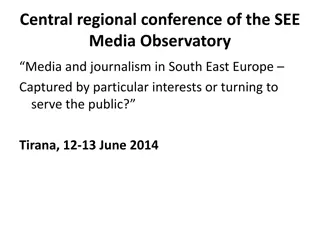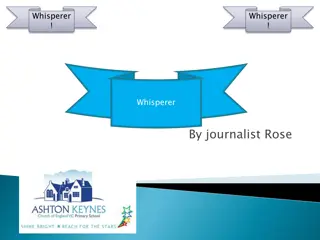Exploring the Professional Identity of Indian Journalists
Professionalism in journalism is a multifaceted concept encompassing normative, administrative, and critical perspectives. This study delves into the nuances of professionalism in the field, examining the dichotomy between public service and power dynamics. It questions the traditional notions of journalism as a profession, highlighting the evolving nature of the industry in the digital age.
Download Presentation

Please find below an Image/Link to download the presentation.
The content on the website is provided AS IS for your information and personal use only. It may not be sold, licensed, or shared on other websites without obtaining consent from the author.If you encounter any issues during the download, it is possible that the publisher has removed the file from their server.
You are allowed to download the files provided on this website for personal or commercial use, subject to the condition that they are used lawfully. All files are the property of their respective owners.
The content on the website is provided AS IS for your information and personal use only. It may not be sold, licensed, or shared on other websites without obtaining consent from the author.
E N D
Presentation Transcript
The Professional Identity of Indian Journalists Jyotika Ramaprasad School of Communication University of Miami jyotika@miami.edu
What is Professionalism? Professionalism: Its meaning lies in its use? It encapsulates the attempt to distinguish occupations from professions, The term is used cursorily or deterministically, It is normative but also operational, It is empowering and exploitative, It references a certain cluster of traits, which in turn may differ by time and space, It implies public service but also power/hegemony, It is a good thing and not.
What is Professionalism? Professionalism: Administrative/Functionalist: It references a certain cluster of traits, which in turn may differ by time and space
What is Professionalism? Professionalism:
What is Professionalism? Professionalism: Critical: It implies public service but also power/hegemony This is not a benign view of professionalism Professions create market shelters or market closures engage in a collective process of upward social mobility, creating a structured inequality create knowledge monopolies define particular social realities for the public (Larson, 1977)
Journalism as a Profession By the normative administrative traits approach, is journalism a profession? Training not required Autonomy not always present
Journalism as a Profession The critical power/hegemony approach Individual level: Professional journalists are singularly outfitted to produce knowledge for the public. Institutional level: Professionalization maintains a dominant sense of what journalism is or should be (Deuze, 2005). BUT: There can be no universal or objective knowledge that re-presents the world as it really is (Glasser, 1992). AND: Journalists are losing this power/hegemonic position with the advent of digital technology
Journalism as a Profession Thus the discourse of professionalism is polysemic Best studied by research in practice
Indian Journalists Opinions about Professionalism This presentation focuses on the first two of the five questions asked of journalists Definition of a professional journalist Self-appraisal Why become journalist? Journalism s functions Participation in unions/associations
Indian Journalists Opinions about Professionalism Definition: Mostly used the traits approach Technical expertise knowledge of events/subject matter Adherence to a moral-ethical value system honesty, integrity and truthfulness reaction to paid news? Adherence to the norms of journalism practice independence, objectivity and balance, lack of bias, and accurate reporting that is thoroughly fact-checked
Indian Journalists Opinions about Professionalism Mostly used the traits approach A nose for news judge what is newsworthy; personal traits of inquisitiveness, curiosity, and attentiveness Responsibility to society that would manifest as responsible reporting a commitment to social betterment and a ear-to-the-ground judgment to implement self-censorship for sensitive or sensational issues
Indian Journalists Opinions about Professionalism Sometimes invoked power/hegemony It is a different kind of power. We have a means to publish something, so people keep coming to us please print this and that for us. That is the power, I think. This power is there in media, which can be used to do some good work.
Indian Journalists Opinions about Professionalism Sometimes invoked power/hegemony The audience is dependent on [print media] for reliable and authentic news because the news that comes in other media may not be authentic Now that anyone can be a journalist, no one is scared of journalists. Earlier police persons or anyone else used to be scared of journalists. This is in a way good.
Indian Journalists Opinions about Professionalism Sometimes invoked power/hegemony If you ask me, I do not believe in citizen journalism. Because [their writing is] just random thoughts Online journalists cannot be trusted at all. Because they will have bias, while no one will doubt a trained journalist because the audience, will trust [that the journalist is] checking everything and following all the journalistic rules and ethics. Online media have less accountability, less script, less quote-checking, less barrier on words used.
Indian Journalists Opinions about Professionalism Finally, If journalists self-appraised as still reaching to become professionals or not a professional, the reasons were Humility Management kept them from being professional
